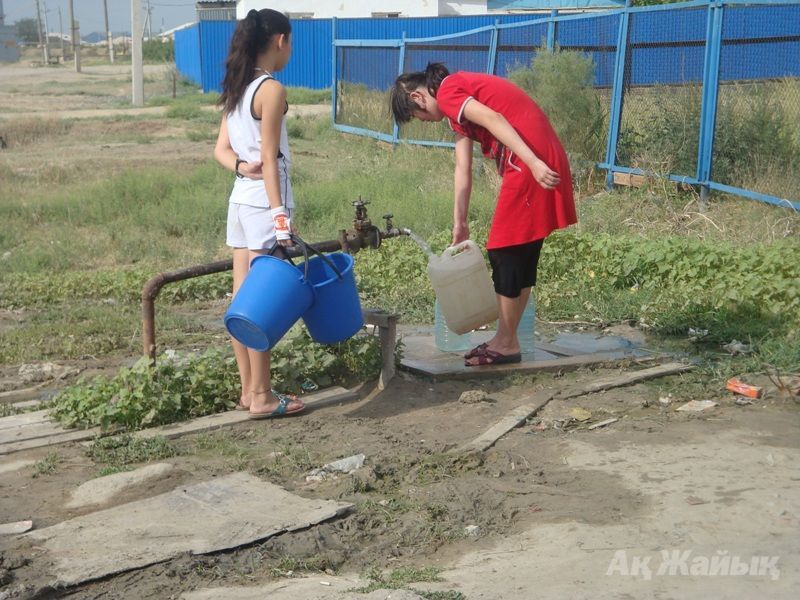By Lyazzat Karazhanova
 Back in the past
Back in the past
A new water pipeline system in the city of Kulsary costs $45 million, but people still carry water in buckets from street standpipes, as in good old times.
The town's mayor Maksim Izbassov says the contractor and the sponsor of the project at the same time was Tengizchevroil. The oblast's construction department was the orderer.
Works under the oil giant's social program Igilik started in 2009 and had to finish in 2012, however are still on.
L.K.: Why the work is not over on time? What's being done at the moment?
M.I.: Pipes have been laid. Now the system is going through a water pressure test. But we failed to deliver water to customers in full yet, as some places lack wellholes and valves. When local failures happen, we have to shut off an entire street's pipe. There is a plenty of other miscalculations too.
I assumed office at the end of the works and therefore I couldn't timely determine all faults and defects. Most of them are breaking surface during the pressure test now. At large, the control on the part of local authorities is not duly carried on.
L.K.: Where will you take money from to remove defects?
M.I.: We want to ask TCO for additional funding. We will tell the company's general director Tim Miller about the situation.
Meantime, hundreds of households in Kulsary's District 4 have no water in taps.
Not so easy was to find the reasons - the meeting of local officials with TCO reps kicked off with mutual blaming and accusation.
"Cost estimation papers were not properly prepared. Water shutoff points were not properly designed. A leak has originated during the pressure test and it is hard to find the cause," says Baurzhan Abdrakhmanov, the director of Zhylyoi Tazalyk LLP, an entity responsible for municipal water pipeline network.
His statement received support from other specialists from the akimat, a town hall, but his uncomplimentary remarks offended TCO reps.
"There is no fault of TCO, the contractor. We were tasked to lay a water line of 251 kilometers, what we did in accordance with the cost estimation documents. Specialists from Zhylyoi-su were always present at work site," said Balabai Zhulginissov, an engineer from Tengizchevroil.
L.K.: You claim to have done a quality work, but the akimat says the system is short of nearly 90 wellholes.
B.Z.: In that case they need to show us the works we have done improperly. We will hold our subcontractor accountable for that. What they are doing now is just issuing empty accusations backed by no specific fact. I can explain why there are less wellholes - the former director of Zhylyoi-su had requested me not to build them at some locations shown on project papers, but to lay extra 3 kilometers of water pipes instead. We met him halfway. Then akim was replaced and now we are being blamed for allegedly improperly completed work.
The hot dispute ended in truce.
"We will meet in the TCO office once again and I hope we will reach a consensus. The akimat aims to reveal all defects and ask TCO for additional funding," says Rayyimbek Suleimenov, the deputy akim of Zhylyoi District.
Apparently, if TCO fails to give out more money, the scandal around the pipeline that cost billions is going to continue.
 В Атырау -10
В Атырау -10